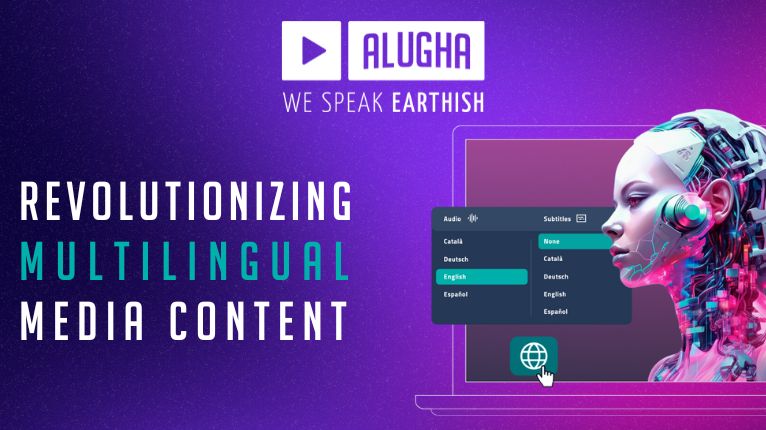The Best YouTube alternatives 2025: A Comprehensive Guide
Explore the top YouTube alternatives 2025. Compare platforms like Vimeo, PeerTube, and Alugha – the German privacy-first, sustainable choice.
alugha: DSA & DMA, Accessibility, and State-of-the-Art AI Technology Made in Germany

Read this article in: Deutsch, English
Estimated reading time:14minutesThe Digital Services Act (DSA) and the Digital Markets Act (DMA) are pivotal EU regulations designed to increase accountability and transparency for online platforms while curbing monopolistic practices. The DSA aims to combat illegal content and bolster user rights, whereas the DMA strives to create fair competition and limit the market dominance, particularly the gatekeeper role of major platforms like Google.
Positive Impacts of DSA and DMA:
alugha’s Stance: Alugha supports these regulations as they enhance transparency and fairness in the digital market. The DSA safeguards users and fosters a secure digital environment, enhancing trust in platforms like alugha. The DMA prevents monopolistic practices and promotes innovation and diversity, benefiting medium-sized companies including alugha.
Complaint against Google: Alugha has filed a complaint in Brussels with the European Competition Authority against Google to address unfair practices that distort competition. Google's market dominance disadvantages smaller competitors, hindering innovation and diversity in the digital market. This complaint underscores the need for regulations like the DMA to ensure fair competitive conditions.
Call to Policy Makers and Businesses: We urge both political and business leaders to support the implementation of the DSA and DMA to foster a fair and innovative digital market. Supporting these regulations is crucial to securing a dynamic and diverse digital economy in Europe, ensuring European and German companies like alugha can continue to grow and innovate.
Additionally, the unilateral use of platforms like YouTube by ministries, authorities, and public institutions is highly questionable given the explained context. Opting for platforms that comply with all European and German laws and regulations would be a strong signal to strengthen European and German service providers.
The Barriers-Free Accessibility Strengthening Act (BFSG) is a significant law aimed at enhancing accessibility across various sectors. It ensures that products and services are accessible to all people, including those with disabilities.
Significance of BFSG for Businesses and Policy:
Value Added by Alugha:
Conclusion: The Barriers-Free Accessibility Strengthening Act (BFSG) is a significant step toward promoting inclusion and accessibility in Germany. Companies like alugha can make a crucial contribution with their expertise in creating barrier-free, multilingual content. Policymakers should support companies in meeting BFSG requirements to create a more inclusive society and lead by example.
As the founder and CEO of alugha, Bernd Korz is a passionate advocate for access to multilingual and accessible media. His expertise in AI and multilingual technologies not only shapes alugha but also influences the international conversation about digital accessibility.
Based in Germany, alugha develops innovative solutions that not only reduce energy consumption but also build communication bridges worldwide by making content multilingual and accessible.

Explore the top YouTube alternatives 2025. Compare platforms like Vimeo, PeerTube, and Alugha – the German privacy-first, sustainable choice.
Discover top video platforms for businesses. Learn what matters when choosing a secure, multilingual, and effective video hosting solution
Learn why alugha’s video hosting platform is the ideal choice for businesses seeking secure, sustainable, and multilingual video solutions. Discover why alugha stands out over YouTube and Vimeo for corporate video hosting.
Hello, dear viewers! In this video I would like to tell you about my school internship at the police in Mannheim. As a 15-year-old student, I had the unique opportunity to gain insight into the police profession and I would like to share this experience with you. During my internship, I experienced
Artificial intelligence in the field of language: from voice cloning to green hosting - where is the journey heading? Artificial intelligence technology is on the rise, especially in the broad field of language, translation, STT and TTS. AI is making many previously tedious processes easier and fas
Join us for the 2022 SXSW Conference & Festivals in Austin, TX from March 11-20. Learn more and register to attend at sxsw.com. About SXSW: SXSW dedicates itself to helping creative people achieve their goals. Founded in 1987 in Austin, Texas, SXSW is best known for its conference and festivals tha